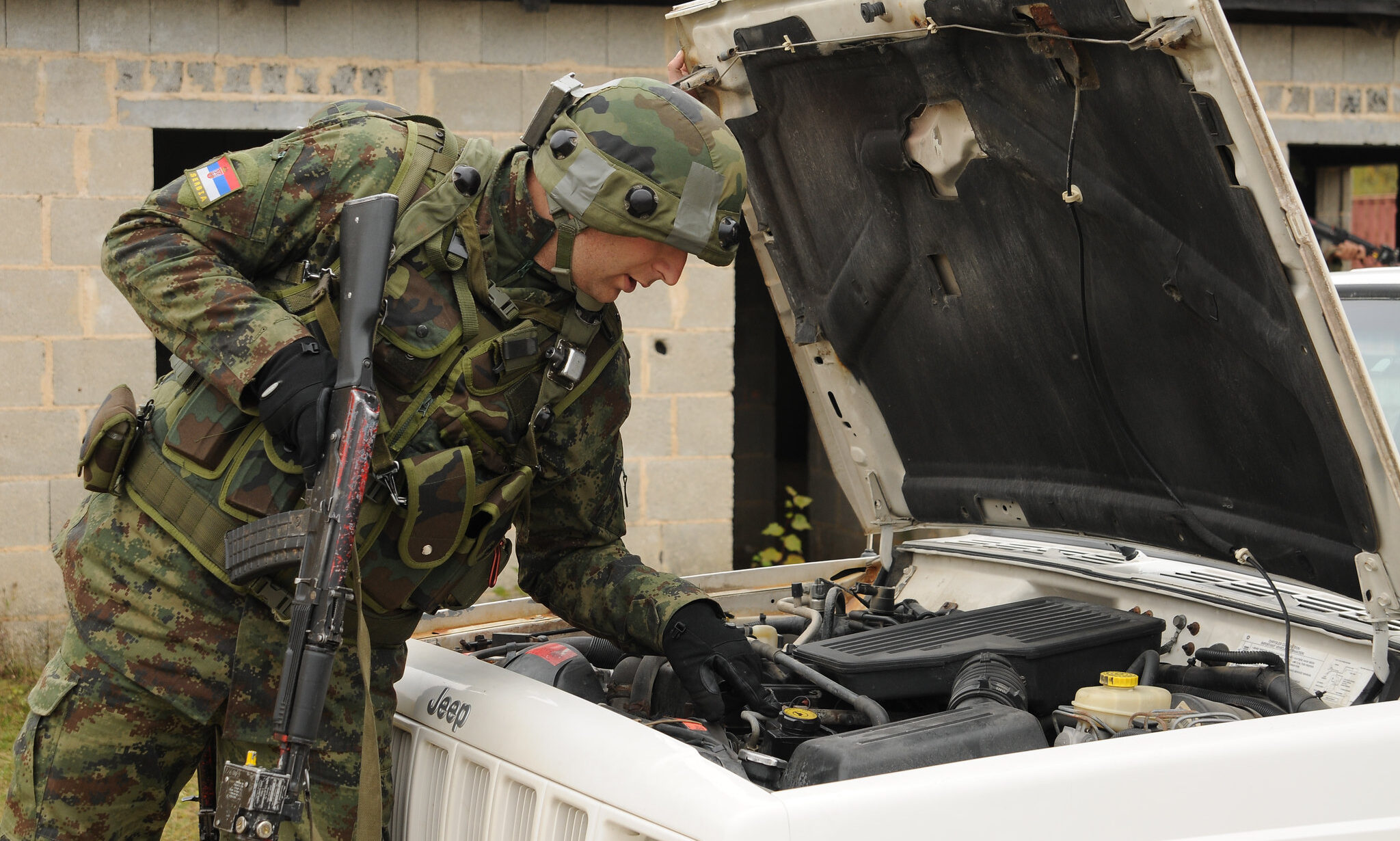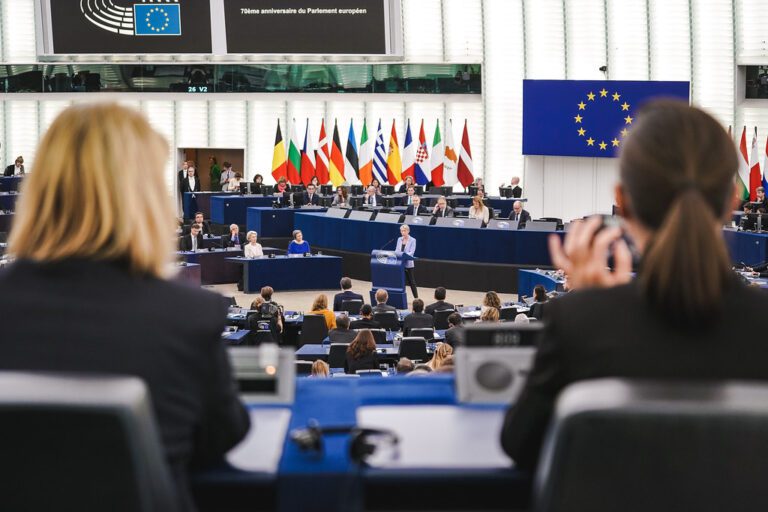
In late July, special forces from China and Serbia will participate in a joint military training exercise – Peace Defenders-2025 – in China’s Hebei province. The announcement, made by Chinese defense ministry spokesman Jiang Bin, raised an important question: what does this type of cooperation bring to Serbia and why has Serbia decided to take part in the joint military exercise at this moment? Given Serbia’s traditional balancing act between East and West in its military engagements, this development could signal a possible shift in Belgrade’s defense policy, striking at the heart of the dilemma over whether it is aligning more closely with Beijing.
Military Neutrality as Serbia’s Proclaimed Position
One possible explanation is that this exercise is not a strategic, but rather a political gesture – a predictable next step in the evolution of a 16-year-old bilateral relationship that has grown significantly in scope and symbolism. And there are different reasons for that.
Officially, Serbia maintains a position of military neutrality. This has been a constant in Serbian defense and security policy for more than 15 years. In 2007, Serbian parliament adopted a Resolution on the Protection of Sovereignty, Territorial Integrity, and Constitutional Order of the Republic of Serbia. At the time, it was a response to the growing challenge of Kosovo’s upcoming declaration of independence. However, it also created a framework for the broader development of Serbia’s defense and security policy in accordance with the position of military neutrality. This neutrality is not passive; instead, it is focused on developing cooperation with individual partners while refraining from an active membership in collective defense organizations such as NATO.
The Defense Strategy of the Republic of Serbia defines this position as Serbia’s commitment to continuously improving its national defense system in order to effectively respond to different security threats, risks and challenges. It also provides insights into the important context of European integration and the overall positioning of Serbia within the field of international relations by clarifying that the country participates in the implementation of the EU’s Common Security and Defense Policy and the Partnership for Peace program, cooperates with the Collective Security Treaty Organization and, as a UN member, actively contributes to international peacekeeping efforts beyond its borders.
This position has enabled Serbia to establish cooperation with a diverse set of actors – a practice utilized by different governments. In practical terms, this means that Serbian armed and civilian forces are currently engaged in five UN-led peacekeeping missions and four EU-led multinational operations. Serbia has also developed defense cooperation with the United States, with a history of joint military exercises; most recently in June 2025, when Serbia joined the US and European forces in the annual Platinum Wolf 25 exercise – a long-standing training hosted by the US European Command.
This has itself been reflective of Serbia’s broader strategy of balancing act that acts as its guiding model in the foreign policy realm. Before Russia’s full-scale invasion of Ukraine, Serbia had also held joint exercises with Moscow. While limiting its overt support for Russia, Serbia remains one of the few European countries that has not imposed sanctions against Moscow – even while reportedly selling ammunition to Ukraine.
In short, Serbia’s official position remains unchanged: it is a militarily neutral state. As interpreted by the Serbian officials, that neutrality grants it the sovereign right to conduct military exercises with a broad range of international partners – including China.
An Addition to Existing Serbia-China Ties
Over the past decade, Serbia and China have steadily expanded their defense cooperation, transforming what began as diplomatic overtures into tangible military ties. Since the establishment of a Comprehensive Strategic Partnership, defense collaboration has been a recurring theme at bilateral summits, with Chinese President Xi Jinping’s 2016 visit to Belgrade serving as a pivotal moment. It resulted in pledges of military-technical assistance and increased cooperation on issues such as counter-terrorism and peacekeeping.
One of the most consequential aspects of this relationship is the arms trade. Serbia has emerged as China’s key defense partner in Europe, overtaking its previous reliance on Russian military supplies. In recent years, Belgrade has procured Chinese-made drones, including the CH-92A and CH-95, and is co-developing the domestically produced “Pegaz” drone with China’s state-owned aerospace firms. A new UAV maintenance center, soon to open in Serbia, will further cement this cooperation.
Beyond unmanned systems, Serbia has acquired the FK-3 medium-range and the HQ-17AE short-range surface-to-air missile systems – both firsts for a European country. These systems were expected to be operational starting January 2025. The purchases significantly bolster Serbia’s air defense capabilities and mark China’s entry into the European defense landscape. While hardware tends to dominate the headlines, joint training efforts also underscore a growing partnership. With several joint police exercise, including the most recent one in 2024, Chinese and Serbian special police forces conducted counter-terrorism drills on both Serbian and Chinese soil. Although the upcoming military exercise will be the first of its kind, Chinese observers have attended similar regional drills in recent years.
The breadth of cooperation in this area is further evidenced by the Free Trade Agreement between Serbia and China, which took effect on July 1, 2024. This includes provisions for the gradual elimination of Serbian import tariffs on Chinese weapons over the next 10 to 15 years. Previously, such imports were subject to a 25 percent tariff. Conversely, China has agreed to eliminate its (lower) import duties on Serbian weapons within a maximum of five years.
Belgrade’s Reasoning
Still, strategic questions regarding long-term implications remain. The military utility of such cooperation with China is limited. Serbia is geographically surrounded by NATO members, and the volume of Chinese military equipment within Serbia’s arsenal is modest. There is little operational necessity for such joint exercises. Instead, this move is likely driven by political motives. Serbia’s foreign policy in recent years has leaned increasingly towards China. The two countries have signed numerous infrastructure and investment deals and have now started with the implementation of a bilateral FTA. Both countries have expressed mutual support on sensitive political issues – especially regarding territorial integrity and sovereignty. This defense exercise appears to be another milestone in a broader campaign of diplomatic alignment – one that reflects not military necessity but foreign policy calculus.
With the European Union’s response to the exercise remaining constrained – and Washington and Brussels preoccupied with Ukraine, the Indo-Pacific, and domestic politics – Serbia’s room to maneuver has quietly grown. With few repercussions in sight, Belgrade seems to be responding to the question of ‘’why China’’ posed by its Western partners with a similar answer: why not?
Written by
Stefan Vladisavljev
vladisavljev_sStefan Vladisavljev is CHOICE Visiting Fellow. He is also the Program Coordinator of the Serbia-based non-governmental organization Foundation BFPE for a Responsible Society. He analyzes Chinese presence in Central and Eastern Europe with a special focus on Serbia and the Western Balkans.


